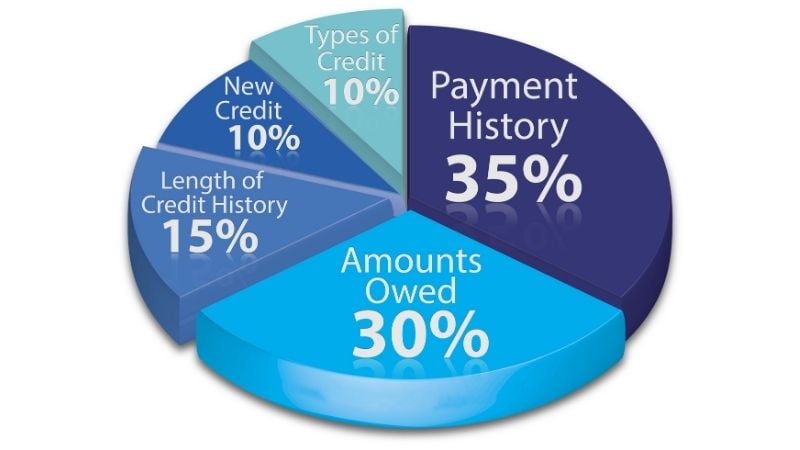What Does COVID-19 Mean for Your Credit Score?
Credit is one of the most important elements of your financial well-being. It can make all the difference for your life goals, like getting a new...
3 min read
 Twin Cities Habitat for Humanity
:
1:30 PM on July 7, 2020
Twin Cities Habitat for Humanity
:
1:30 PM on July 7, 2020
![Understanding Your Credit Score [VIDEO]](https://www.tchabitat.org/hubfs/2020%20Blog%20Images/July/Understanding%20Credit%20Score%20-%20Featured.jpg)
We continue to process the pain and hope of our nation’s uprising for racial justice amid a global health crisis. You can see our recent statements on the uprising, our COVID-19 web page, and our Race & Housing resource center. Expanding homeownership is a key component of racial equity and health, so our mission has never been more important—and we’ll continue to share the stories of Habitat’s work.You have undoubtedly heard the term “credit score” used throughout your life. But what exactly is it?
In simple terms, your credit score is a financial rating based on how likely you are to repay debt. Homeowner Development Manager, Pa Lor, says, “It’s like your financial reputation and a grading of where you stand.”In this video, Pa unpacks what a credit score is, why it matters, and what factors go into creating your score:
Read our related blog "What Does COVID-19 Mean for Your Credit Score?"
While credit scores are most often associated with qualifying for various forms of credit (like mortgages or auto loans), there are a handful of other instances when your credit score may come into play.
Who could potentially look at your credit:
It’s important for you to understand what goes into your credit score and how your financial choices can affect it. You should keep these factors in mind as you make financial decisions.
Payment History (35% of your credit report)
Late payments and open collection accounts with outstanding balances will bring down your credit score substantially. With credit cards, it’s best to pay off the balance in full each month, but as long as you are paying your minimum, you won’t be issued a late fee, and it won’t be reported on your credit score.
Credit Utilization (30% of your credit report)
This refers to how much of your available credit (credit limit) you are using (current balance). The golden rule for this is to keep your credit utilization at 30% or below. In the eyes of a credit bureau, anything above that will show that you are a higher risk to lend money to. Even if you know that you will be paying off the full balance, going above 30% will still reflect negatively on your credit score.
Length of Credit (15% of your credit report)
Credit bureaus will look for your oldest account and the average age of all of your accounts together. It shows how long you’ve interacted with credit, thus how much experience you have with managing it. If you were to open multiple lines of credit within a short period of time, it may reflect poorly on your credit score as the average age of your accounts would go down dramatically.
Mix of Credit (10% of your credit report)
Although it isn’t vital to your credit score, mixing credit can show lenders you have experience with different types of credit. For example, a traditional loan shows you can manage installment accounts, and having a credit card shows you have experience with revolving credit. Keep in mind that this makes up such a small amount of your credit score that you shouldn’t take out a new line of credit just to diversify the types of credit you’re using.
New Credit Inquiries (10% of your credit report)
Anytime you apply for a new account or credit card, there will be an inquiry for your credit score. An inquiry can cause a temporary and usually minor dip in your score. However, if you are opening multiple accounts within a short period of time, the number of credit inquiries during that period will have a significant impact on your score.
It should also be mentioned that when you check your own credit score or credit history, this does not qualify as a credit inquiry and will not affect your score.
There are multiple scoring models, and depending on which model a given credit bureau (the company that collects your credit information and gives you a rating) uses, your credit score may vary.
The two most popular models are the FICO Score and VantageScore. You don’t really need to know the difference between the two. As long as you’re aware of the factors that go into a credit score, both models should give lenders an accurate look at your financial rating.
“I kind of see it like the difference between a weighted GPA and an unweighted GPA,” Pa says. “They’re scoring your interactions and credit behavior, but they’re weighing different things differently.”
Additionally, credit reports may vary based on when the information was pulled. You can think of a credit score as a snapshot of your credit rating at a specific point in time.
Your gift unlocks bright futures! Donate now to create, preserve, and promote affordable homeownership in the Twin Cities.

Credit is one of the most important elements of your financial well-being. It can make all the difference for your life goals, like getting a new...

Understanding key financial terms is essential for first-time homebuyers (and anyone else getting ready to borrow money from a lender). Knowing what...

Whether you’re actively searching or simply thinking about starting to look for a home, you can put this time to good use by trying to improve your...